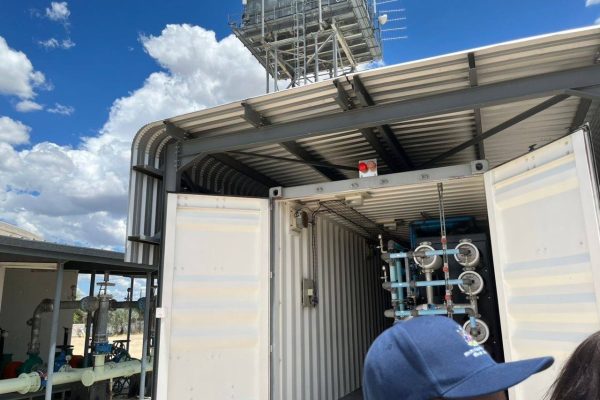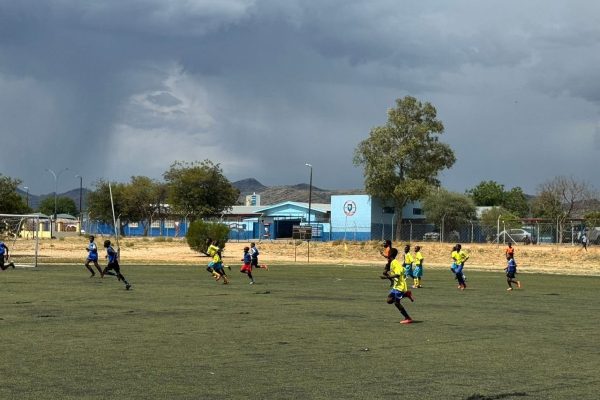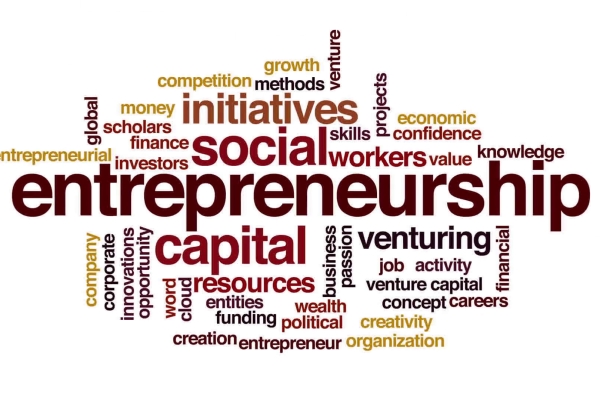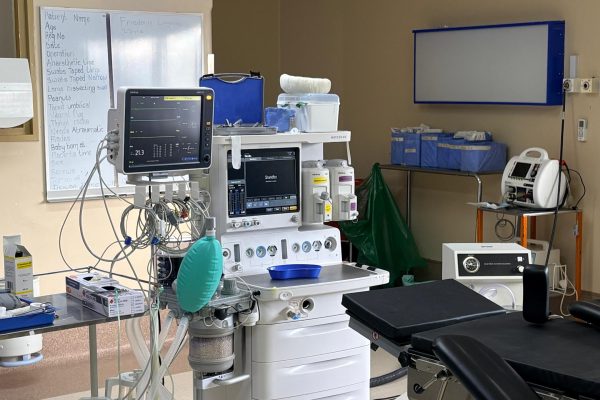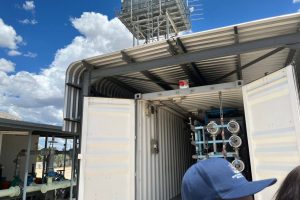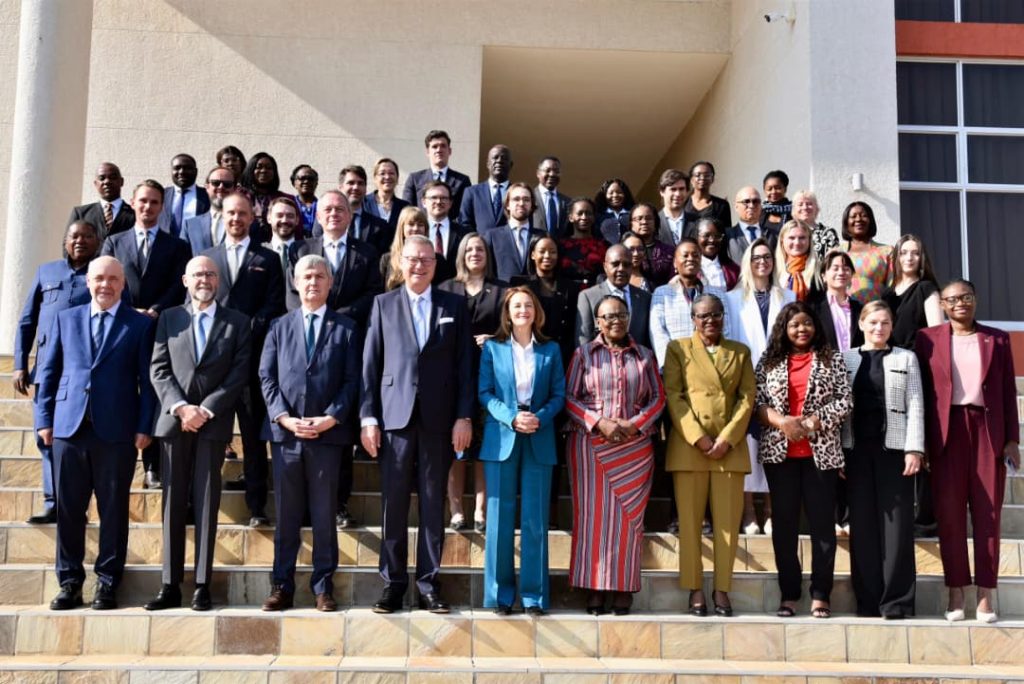
By: Patemoshela Lukolo
Namibia and the European Union (EU) held their 2025 Partnership Dialogue in Windhoek on Monday, reaffirming ties in trade, development, and multilateral cooperation, while reviewing progress on joint initiatives in energy, governance, and social development.
The meeting was co-chaired by Namibia’s Minister of International Relations and Trade, Selma Ashipala-Musavyi, and EU Ambassador to Namibia, Ana Beatriz Martins.
Senior representatives from Namibian ministries, agencies, and the National Planning Commission were in attendance, alongside diplomats from 11 EU member states.
In her opening statement, Ashipala-Musavyi commended the EU’s long-standing support to Namibia, citing investments in green industrialisation, renewable energy projects, the Etunda Feedlot, and humanitarian aid for drought response.
She called on the EU to continue aligning with Namibia’s Sixth National Development Plan (NDP 6), launched in July, which sets out goals for economic growth, human development, environmental sustainability, and good governance.
Ambassador Martins described the dialogue as a “momentous step” in relations, marking 35 years of formal ties. She stressed that the EU remains Namibia’s largest and most diversified trading partner, with duty and quota-free access to European markets under the Economic Partnership Agreement.
Martins highlighted that Namibia maintains a positive trade balance with Europe and welcomed preparations for the next EU–Namibia Business Forum, scheduled for March 2026 in Windhoek.
A key focus of the talks was the Strategic Partnership on Green Hydrogen and Critical Raw Materials, launched in 2022.
Both sides reviewed progress under the roadmap, including projects such as HyIron, which are pioneering green industrialisation and job creation.
According to the EU, Team Europe has committed N$26 billion in grants and loans to Namibia, with up to N$400 billion in potential private European investment under consideration.
Beyond energy, the dialogue also reviewed cooperation in early childhood education, vocational training, governance reforms, and gender equality.
Martins noted EU support for Namibia’s efforts to fight corruption and gender-based violence, describing these as “building blocks for a resilient, inclusive economy.”
The discussions also covered regional and global issues, including conflict situations in Africa, the Middle East, and Europe. Both parties reaffirmed their commitment to multilateralism, peaceful conflict resolution, and adherence to the UN Charter. Additionally, they agreed to deepen cooperation on the Women, Peace and Security Agenda and the implementation of the UN’s Pact for the Future.
The dialogue concluded with the co-chairs expressing appreciation for what they described as a constructive and forward-looking engagement.
They pledged to maintain regular follow-ups to ensure that commitments translate into tangible benefits for Namibians and Europeans alike.


